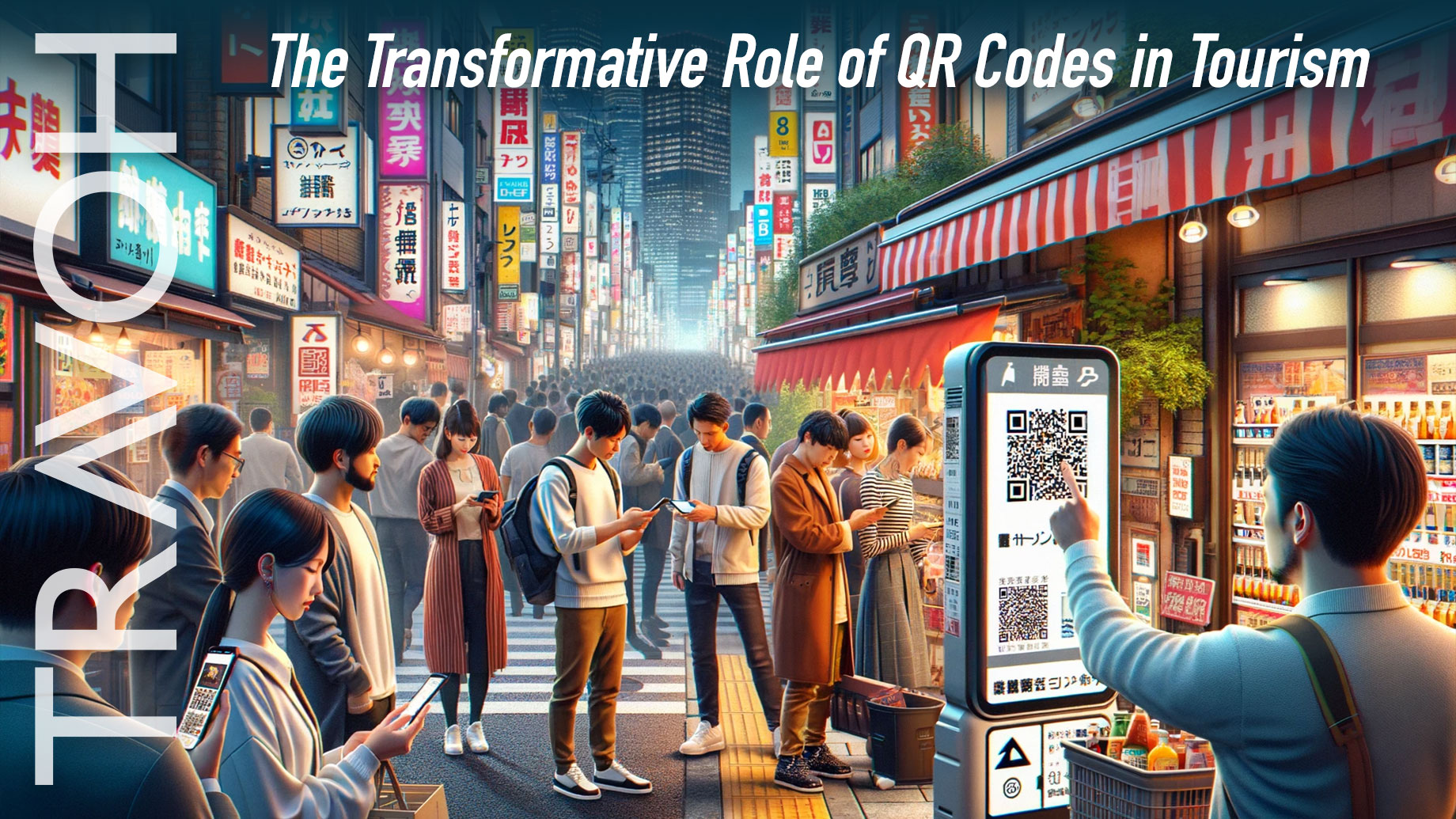
QR codes, those pixelated little squares, are swiftly becoming the passport to a seamless travel experience. From airline boarding passes to interactive city guides, these digital wonders are reshaping tourism, offering both convenience and engagement at every step.
Table of Contents
- QR codes transform travel accessibility
- Understanding QR code types is essential
- QR codes offer innovative tourism solutions
- QR codes bring multiple travel benefits
- Easy creation and implementation of QR codes
The Rise of QR Codes in Travel
QR codes have become a staple in the travel industry, significantly altering how information is accessed and experiences are enjoyed. As a traveler, you might have already encountered QR codes in various scenarios. Airlines now use them for boarding passes, hotels for contactless check-ins, and restaurants for digital menus. This technology not only captures the attention of tourists but also streamlines their journey.
Travel-related businesses are adopting QR codes as part of their marketing strategies. Their success lies in providing value and convenience, making the tourist experience smoother and more enjoyable. So, how can your business leverage this technology? Understanding QR codes, how they work, and the process of creating them is the first step. It’s essential to ensure the content linked to these codes is informative, user-friendly, and engaging.
Understanding QR Codes: Basics to Advanced
A QR code, short for Quick Response code, is a two-dimensional barcode that stores information in a scannable format. Unlike the older, one-dimensional barcodes, QR codes can store a plethora of information, including URLs, text, and contact details.
There are mainly two types of QR codes: static and dynamic. Static QR codes contain fixed data, ideal for consistent information like website URLs or contact details. Dynamic QR codes, however, are more flexible, allowing data to be updated even after the QR code is generated. This feature is particularly useful for marketing campaigns or providing real-time updates.
Creating a QR code involves using a QR code generator or software. Once you input the desired data, the software generates a unique QR code pattern. To read it, a QR code scanner, typically found in smartphones, is used. Scanning the code then prompts the device to perform actions like opening a URL or displaying text.
Innovative Applications of QR Codes in Tourism
QR codes are revolutionizing the way cities welcome tourists. Imagine a traveler, unfamiliar with the local language, landing in a new city. QR codes at airports or train stations can offer them a comprehensive city guide, local transportation modes, must-visit places, and tips on local cuisine. These codes act as digital guides, making cities appear more welcoming and tourist-friendly.
QR codes also address the language barrier, a significant challenge for international travelers. A single QR code can hold data in multiple languages, providing tourists with information in the language they’re comfortable with. This feature is particularly valuable at museums, historic sites, and zoos.
Advertising upcoming festivals and community events is another innovative use of QR codes in tourism. Tourists can scan QR codes on event posters to get all necessary details like start time, venue, ticket prices, and even directly add the event to their calendar or purchase tickets. This method efficiently promotes local celebrations and immerses tourists in the city’s culture.
QR codes also offer an efficient alternative to traditional brochures and printed maps in hotels. Instead of dealing with the logistical challenges of updating and reprinting brochures, hotels can display QR codes that guests can scan to access updated neighborhood maps or city guides. This approach not only saves on paper but also ensures that guests always have the most current information at their fingertips.
Benefits and Power of QR Codes for Travel
One significant advantage of QR codes in the travel and tourism industry is their tracking capability. Every scan of a QR code generates data, providing businesses with insights about user behavior, scanning locations, and peak times. This information is crucial for refining marketing strategies and enhancing customer service.
GPS-based features of QR codes also play a crucial role in enhancing tourist navigation. By embedding GPS locations into QR codes, tourists can be directed to specific spots on a map application, saving time and reducing the frustration of getting lost. This feature is especially useful in large tourist sites or national parks.
Moreover, QR codes align well with the growing trend of sustainable travel. By replacing paper brochures with QR codes, the travel industry can reduce its environmental footprint while still providing comprehensive information to tourists. This approach not only positions businesses as eco-friendly but also cuts down on printing costs.
How to Create a QR Code for Travel?
Creating a QR code for travel is surprisingly simple. The process involves choosing the right type of QR code – whether it’s a URL QR code to direct tourists to a webpage or a text QR code to share information directly. Then, using a QR code generator like QRCodeDynamic, you input the information and generate the QR code. It’s important to customize the QR code to match your brand identity and ensure it’s visually appealing and easily scannable. Remember to test the QR code with different apps and devices before rolling it out.
FAQs
- How do QR codes enhance the tourist experience?
- QR codes streamline the travel experience by providing easy access to information, navigation assistance, and personalized services.
- What are the differences between static and dynamic QR codes?
- Static QR codes contain fixed information, while dynamic QR codes can be updated even after creation, suitable for time-sensitive or evolving content.
- Are QR codes cost-effective for small travel businesses?
- Yes, QR codes are a cost-effective solution for businesses of all sizes, reducing printing costs and offering a flexible, dynamic way to share information.
Conclusion
QR codes are redefining the travel industry, providing innovative solutions to enhance the tourist experience. From making cities more welcoming to offering sustainable, cost-efficient alternatives to traditional marketing tools, QR codes are a game-changer. For travel businesses looking to stay ahead, embracing QR code technology is not just an option but a necessity.

